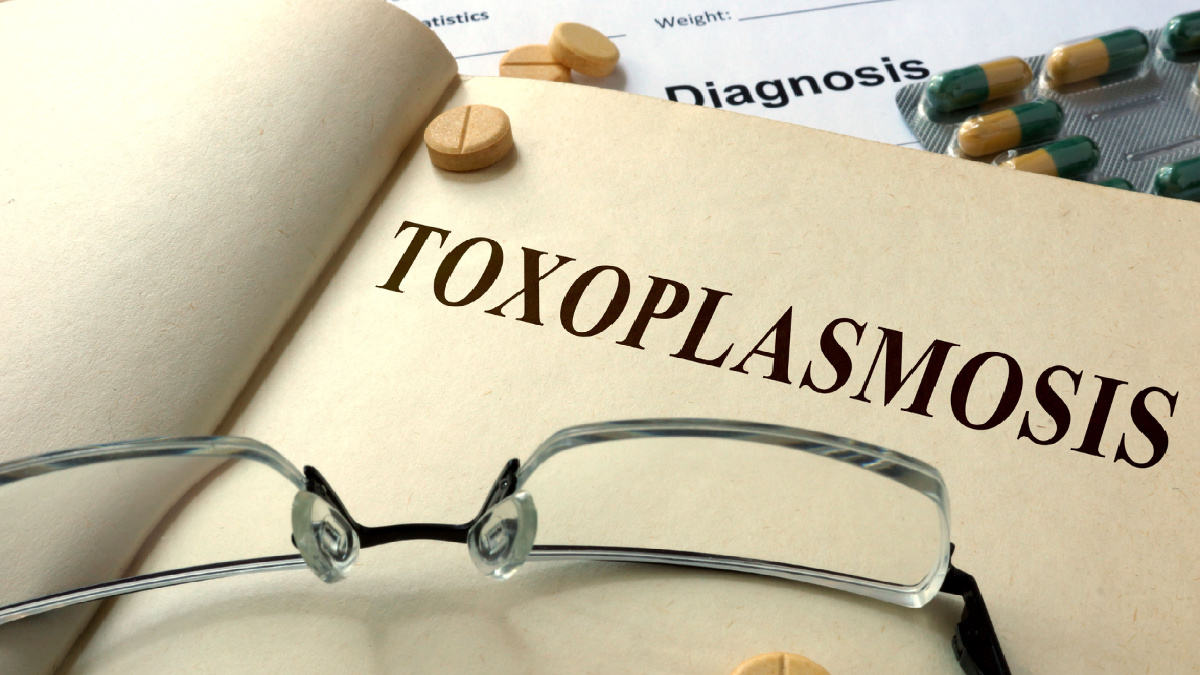Toxoplasmosis is a parasitic infection caused by the Toxoplasma gondii parasite. This parasite is found in the feces of infected cats and can also be present in contaminated food, water, and soil. Most people with a healthy immune system do not experience any symptoms of toxoplasmosis, but those with weakened immune systems or pregnant women can experience severe symptoms and complications. The infection can be transmitted from a pregnant woman to her unborn child, causing birth defects and developmental delays. Treatment for toxoplasmosis typically involves antibiotics and antiparasitic medication. It is important to take preventive measures, such as washing hands and cooking meat thoroughly, to avoid contracting this infection.
Causes And Risk Factors Of Toxoplasmosis
The main risk factors for toxoplasmosis include handling cat litter, consuming contaminated food or water, and having a weakened immune system. Pregnant women are also at risk of transmitting the infection to their unborn child, which can lead to serious health problems. Additionally, individuals who consume raw or undercooked meat, particularly pork, lamb, or venison, are at a higher risk of contracting the infection. It is important to take precautions, such as washing hands thoroughly and cooking meat properly, to prevent the spread of toxoplasmosis.
Symptoms Of Toxoplasmosis
The symptoms of toxoplasmosis can vary widely depending on the severity of the infection, the age and health of the infected person, and whether or not the person has a weakened immune system. Common symptoms of toxoplasmosis include fever, fatigue, headache, muscle aches, and swollen lymph nodes. In some cases, the infection can cause more serious symptoms such as seizures, confusion, and blurred vision. Pregnant women who become infected with toxoplasmosis can pass the infection on to their unborn child, which can cause serious birth defects or even death. It is important to seek medical attention if you suspect you may have toxoplasmosis, especially if you are pregnant or have a weakened immune system.
Diagnosis Of Toxoplasmosis
The diagnosis of this disease is based on the detection of antibodies in the blood, which can be done through a blood test. The test can detect both IgG and IgM antibodies, which indicate past or recent exposure to the parasite. Other diagnostic methods include a biopsy of infected tissues, such as the lymph nodes or brain, and a polymerase chain reaction (PCR) test, which can detect the DNA of the parasite in blood or tissue samples. Early diagnosis of toxoplasmosis is important, as it can help prevent severe complications, especially in individuals with weakened immune systems.
Treatment Options For Toxoplasmosis
There are several treatment options for toxoplasmosis, including antibiotics like pyrimethamine and sulfadiazine, which are commonly used to treat severe cases of the infection. In addition, supportive care, such as anti-inflammatory medications and pain relievers, may be prescribed to alleviate symptoms and improve the patient’s quality of life. It is important to seek medical attention if any symptoms of toxoplasmosis develop, as prompt treatment can prevent serious complications and improve the chances of a full recovery.
Prevention of Toxoplasmosis
The first step in prevention is ensuring proper hygiene practices, such as washing hands thoroughly with soap and water after handling cat litter or raw meat.
Additionally, pregnant women should avoid changing cat litter if possible, or wear gloves and a mask if they must. Meat should be cooked to a safe temperature, and fruits and vegetables should be thoroughly washed before consumption. Overall, practicing good hygiene and food safety habits can greatly reduce the risk of contracting Toxoplasmosis.
Complications Of Toxoplasmosis
While most healthy individuals may not experience any symptoms, those with weakened immune systems may develop severe complications. These complications can include encephalitis, which is inflammation of the brain, seizures, and even blindness. Pregnant women who contract toxoplasmosis can pass the infection to their unborn child, leading to birth defects, including brain damage, vision loss, and hearing loss. It is important for individuals with weakened immune systems and pregnant women to take precautions to avoid exposure to the parasite, such as avoiding undercooked meat and handling cat litter with caution. Early diagnosis and treatment are crucial in preventing complications of toxoplasmosis.
Importance Of Early Detection And Treatment Of Toxoplasmosis
In conclusion, early detection and treatment of toxoplasmosis are crucial for preventing severe complications and long-term health problems. Pregnant women and individuals with weakened immune systems must be particularly vigilant in avoiding exposure to the parasite and seeking prompt medical attention if symptoms develop. While some cases of toxoplasmosis may be mild and resolve on their own, others can be life-threatening, making it essential to take preventive measures and seek medical care if necessary. By raising awareness about the importance of early detection and treatment of toxoplasmosis, we can help protect the health and well-being of individuals at risk for this potentially dangerous infection.





